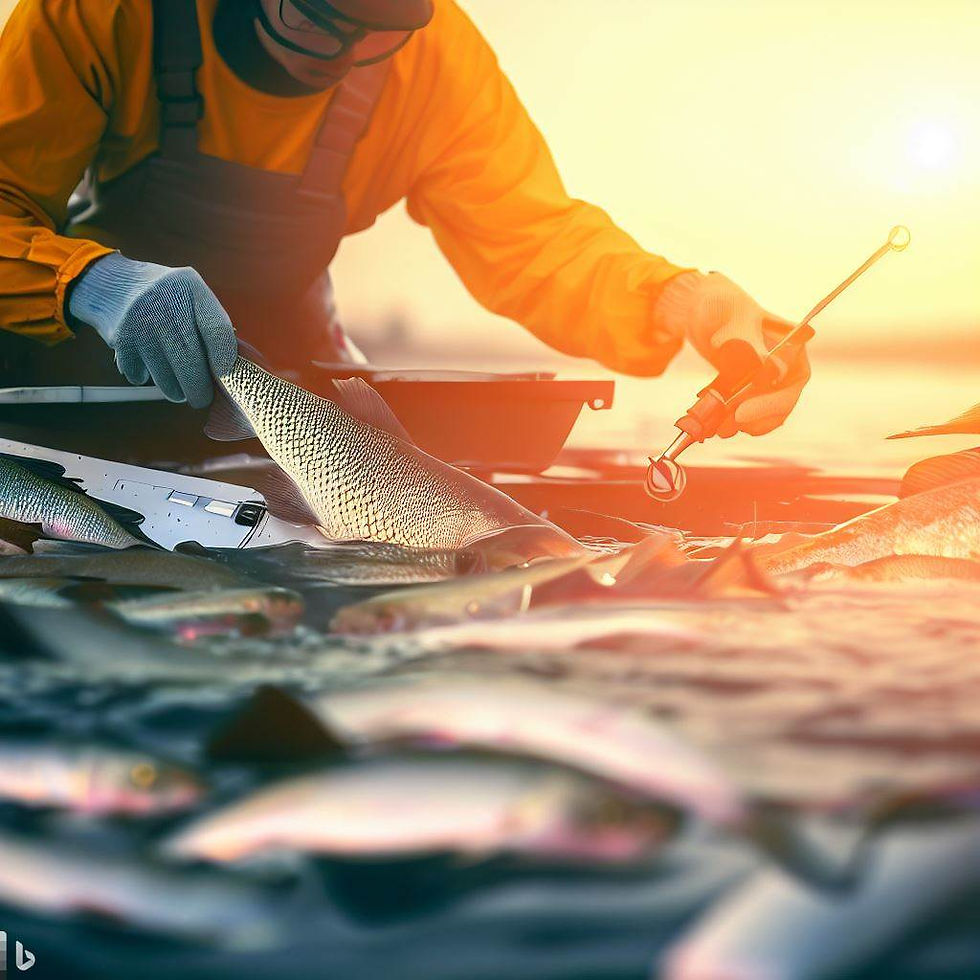Law Regulation and Policy Development in Sustainable Fisheries in Indonesia
- Peterson Projects and Solutions Indonesia

- Apr 13, 2023
- 3 min read

In pursuing certification in fisheries, business owners must ensure that their fisheries enterprise is classified as sustainable. One of the critical factors in achieving this is how business owners adhere to regulations, rules, and policy developments that are implemented to promote sustainability in fisheries.
Indonesia, renowned for its abundant marine resources, has over 50,000 laws and regulations. In fisheries, several key legal frameworks guide the management and utilisation of natural resources, including wild capture and aquaculture fisheries. This article provides an overview of the law regulation and policy development in sustainable fisheries in Indonesia, including the constitutional framework, national laws, government institutions, international agreements, and participation in regional fisheries management organisations.
The 1945 Constitution of Indonesia serves as the highest legal authority in the country, to which the executive, legislative, and judicial branches of government must defer. Article 33 of the Constitution is the primary reference for national economy and social welfare laws, including managing and utilising natural resources like fisheries. This constitutional provision emphasises that natural resources and their utilisation should be aimed at the most significant benefit for the people and regulated by the state in the interest of public welfare.
In addition to the Constitution, several other laws are particularly significant regarding the fisheries sector in Indonesia. These include Law (UU) No. 31/2004 on Fisheries, which was amended by Law (UU) No. 45/2009; Law (UU) No. 27/2007 on Coastal Areas and Small Islands, which Law amended (UU) No. 1/2014; Law (UU) No. 23/2014 on Local Government, which Law amended (UU) No. 2/2015; Law (UU) No. 32/2014 on Marine Affairs; and Law (UU) No. 7/2016 on the Protection and Empowerment of Fishers, Fish Farmers, and Salt Farmers. These laws provide the legal framework for managing, conserving, and utilising fisheries resources in Indonesia and outline the rights and responsibilities of various stakeholders, including fishers, fish farmers, and government institutions.
In addition to laws, numerous government institutions/entities in Indonesia have mandates related to the fisheries sector. The Ministry of Marine Affairs and Fisheries (MMAF) is the primary government institution overseeing the fisheries sector. However, in 2015, the MMAF was placed under the coordination of a new coordinating ministry, the Coordinating Ministry for Maritime Affairs, responsible for coordinating and integrating policies related to marine affairs, including fisheries, across different sectors and government institutions.
Regarding international agreements, Indonesia, as a member of the international community, must comply with the contents of international agreements it has signed or is a party to. The substance must make national regulations issued by Indonesia to ratify these agreements of the signed documents. Indonesia participates in various international organisations related to fisheries, and membership in these organisations has implications such as funding for the secretariat and compliance with provisions stipulated in the organisation's bylaws and other documents.
One crucial group of international agreements in the fisheries sector are the Regional Fisheries Management Organizations (RFMOs), which are regional intergovernmental organisations that aim to promote cooperation among states for the conservation and management of shared fishery resources. Indonesia is a member of several RFMOs, including the Indian Ocean Tuna Commission (IOTC) and the Western and Central Pacific Fisheries Commission (WCPFC). Participation in these RFMOs has strengthened the focus on science-based fisheries management. These organisations develop and implement conservation and management measures based on the best available scientific information to ensure the sustainability of fishery resources in the region.
The regulation and development of policies for sustainable fisheries in Indonesia are shaped by international agreements, national laws, and the role of government institutions such as the Ministry of Marine Affairs and Fisheries (MMAF). Participation in Regional Fisheries Management Organizations (RFMOs) and adherence to international agreements have contributed to the development of science-based approaches to fisheries management. At the same time, national laws and regulations aim to ensure the sustainability of fish stocks, protect the marine ecosystem, and promote the welfare of fishers and fish farmers. Despite challenges, ongoing efforts are being made to improve the implementation and enforcement of these laws and regulations for the sustainable management of fisheries in Indonesia.
In conclusion, navigating the complex landscape of law regulation and policy development in sustainable fisheries can be challenging for business owners. However, Peterson is here to assist you in achieving certification in fisheries and ensuring that your enterprise meets the highest sustainability standards. Our expertise, fisheries management experience, and sustainability commitment make us your ideal partner in pursuing certifications such as the Marine Stewardship Council (MSC) or Aquaculture Stewardship Council (ASC). Let us help you unlock new opportunities in the sustainable fisheries industry while promoting responsible and ethical practices. Contact Peterson today to learn more about how we can support your fisheries certification journey.
source: https://www.pshk.or.id/wp-content/uploads/2019/04/Legal-and-Government-Institutional-Landscape-of-the-Fisheries-Sector-Full-Report-PSHK-2019.pdf

Comments